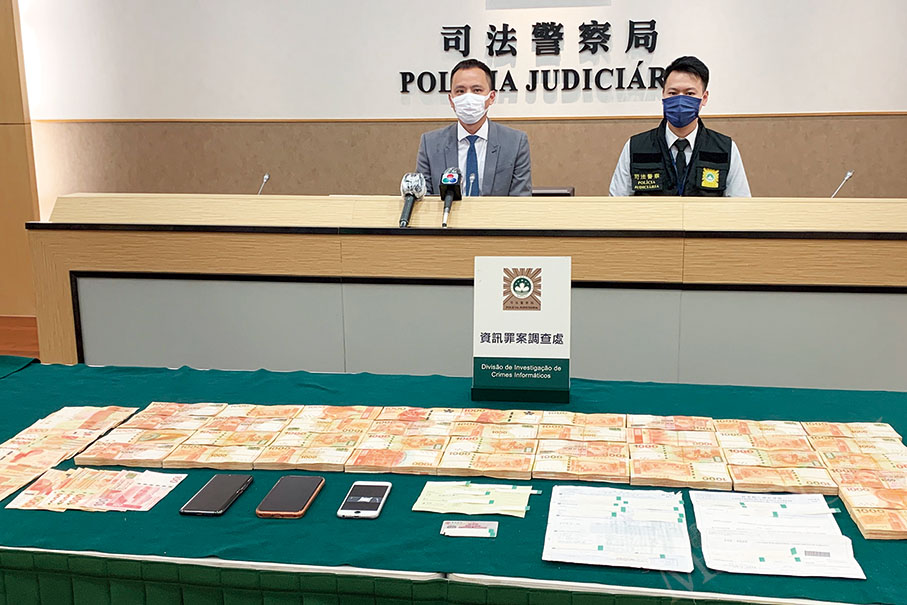With the start of the new school year and soon entering the fourth quarter of the year, the Office of Secretary for Security Wong Sio Chak issued a statement on its website yesterday to warn members of the public that since 2020 the number of cyber fraud reports received by law enforcement in the fourth quarter of each year have always been higher than the previous quarters, mainly involving phishing SMSs and websites, online ticketing fraud and part-time job scams.
In the first eight months of this year, according to the statement, the Judiciary Police (PJ) investigated 372 new cases of unauthorised use of credit cards, 25 cases of computer fraud, 201 cases of online shopping scams and 93 cases of brushing scams* involving “fake clicks”, with the number of cases of unauthorised use of credit cards, online shopping and brushing scams having risen by 72 percent, 19 percent and 48 percent respectively year on year.
Due to the fact that young people are becoming more active on social networking and, at the same time, a large number of events have been scheduled to take place one after another in the fourth quarter, coupled with the upcoming travel season, members of the public are once again urged to stay vigilant and raise their awareness of cyber fraud, the statement said.
The statement underlined that cybercrime involving uninvited messages, investment groups, “experts” giving advice on stock market movements, messages from strangers of the opposite sex requesting friendship and internet friends offering to engage in compensated dating and nude chats are still common in Macau, with the number of reports of various phone fraud cases, including those impersonating purported government employees, also remaining high.
The statement added that between 2020 and 2023, with the exception of 2022, the number of online fraud cases received in the fourth quarter of each year stood higher than all the other quarters.
According to the statement, since the launch in early April, the time-of-use rate of the PJ Anti-fraud Programme on its official WeChat account “PJ_Macao” had reached over 36,000 by the end of August.
The statement underlined that the Judiciary Police have been actively deepening their three-pronged preventive strategy, namely, “prevent from being scammed”, “recover financial losses” and “anti-crime”, promising that in addition to the continuous enhancement of various anti-fraud measures, the Judiciary Police will continue to implement a raft of key anti-fraud initiatives, including the recently-held “Anti-Fraud Vaccination Programme on Campus”, with a number of tertiary-education institutions planning to launch curricula involving anti-fraud awareness-raising education, as well as last month’s “Anti-Fraud Exchange Meeting” with the financial sector to further improve online and offline measures to dissuade and stop suspicious remittances.
Meanwhile, details about Macau’s first half-year crime statistics will be announced by Wong in a press conference this afternoon.
*A dishonest or illegal activity in which a seller sends something, often a product of low value, to a customer who has not asked or paid for it, then uses that customer’s name to write good reviews of the seller’s products on the internet. Source: Cambridge Dictionary








